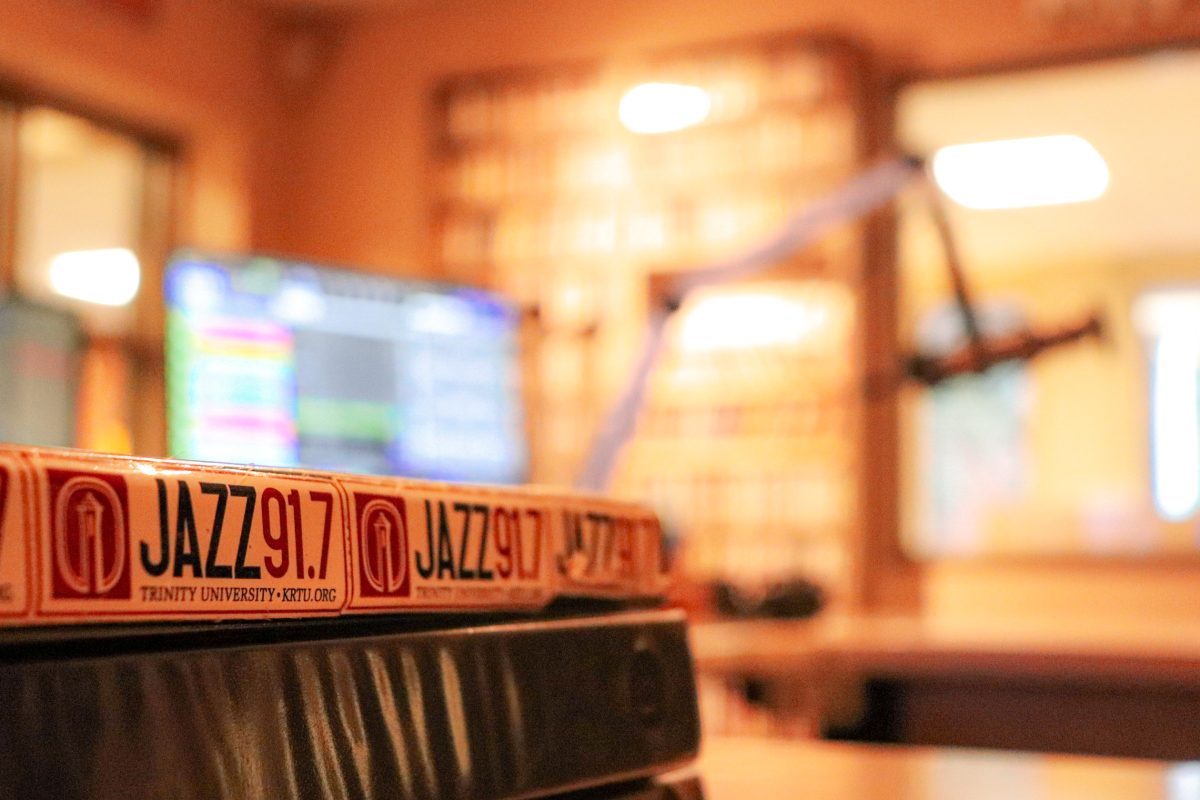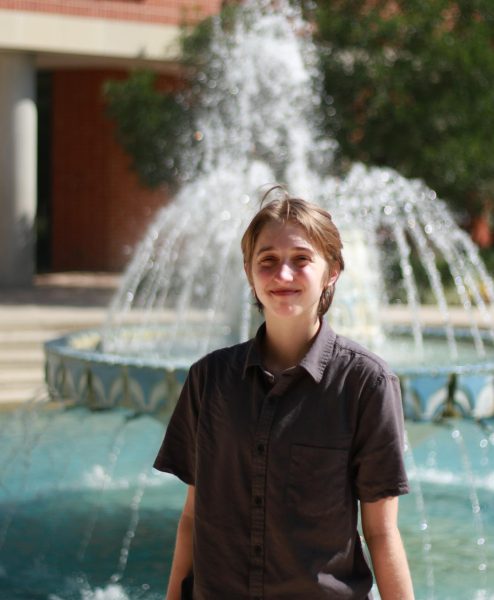Trinity’s radio station, KRTU FM 91.7, provides on-air programming to Trinity and the larger San Antonio community, but it’s much more than just a channel on the radio. KRTU hosts events both on Trinity’s campus and locally, broadcasts to listeners far away and provides student interns with real-world educational experiences, all of which is made possible through fundraising, largely through their membership drives.
Donations from KRTU’s listener base make up over half of their annual operating budget, and today marks the end of their fall membership drive. The drive, which began on Sept. 22, is an initiative encouraging people to purchase or renew membership subscriptions to KRTU.
Julie Ledet, KRTU’s director of development, commented that funding from the membership drive directly allows the station to function as a learning lab for students seeking experience in the radio industry.
“KRTU teaches 6 interns per semester how to work as radio professionals, which includes how to fundraise and operate a radio station and offering a holistic approach to radio station management,” Ledet wrote in an email.
Beyond just students on campus, KRTU has an expansive listener base. Kory Cook, music director of KRTU, said he enjoys every semester’s membership drive for many reasons, one of them being that it shows the breadth of KRTU’s international reach.
“People turn to us from all over the world,” Cook said. “We find that out during the membership drive — somebody might make a contribution online and say, ‘I’m listening from Iceland.’”
Many KRTU members, however, are San Antonio locals. Ledet emphasized the importance of local community events for KRTU, which she said are a cultural connector for many.
“It is through these community partnerships that we make KRTU even more accessible and to a larger audience,” Ledet wrote.
Sabrina Enriquez, junior communication major and KRTU intern, said that one reason memberships are so important is that they help the station remain free of advertisements, allowing KRTU to devote all of its airtime to broadcasting its programs, many of which are student-run.
“These drives really help us keep the station going and also allows students to have hands-on experiences,” Enriquez said.
Students can get involved with KRTU as interns or through certain classes in the communication department, such as on-air hosting or podcasting. Enriquez’s KRTU internship involves directing the show Indie Overnight, which airs every night from 10 p.m. to 5 a.m. She enjoys that students have input over the songs played on Indie Overnight, and notes the influence of their thoughts extends beyond those hours.
“Last semester, two of the interns also put on the KRTUfest, so I would say we have a lot of influence,” Enriquez said.
Cook described KRTUfest, which took place for the first time ever last semester, as a success. He said it was a great opportunity for students involved with KRTU to learn how to put on a music festival, from organizing refreshments to hiring a sound engineer and booking artists. KRTUfest is a prime example of the opportunities both Cook and Enriquez are grateful to see the membership drive provide students with.
KRTU has been student-run and nonprofit since its first broadcast in 1976 and remains nonprofit to this day. The cost of an annual membership, $60, keeps the station on the air for one hour. However, Ledet acknowledged the potential challenges of this membership amount with the rising cost of living and said that KRTU appreciates every donor, regardless of their giving level.
Additionally, Ledet said that there are many ways people can give to KRTU, one of which is advocating for the station and helping to raise awareness, which goes back to the goal of connecting with the community.
“I believe that we are stronger if we meet each other where we currently are, and if the whole feels supported and valued, we’ll all benefit,” Ledet wrote.








